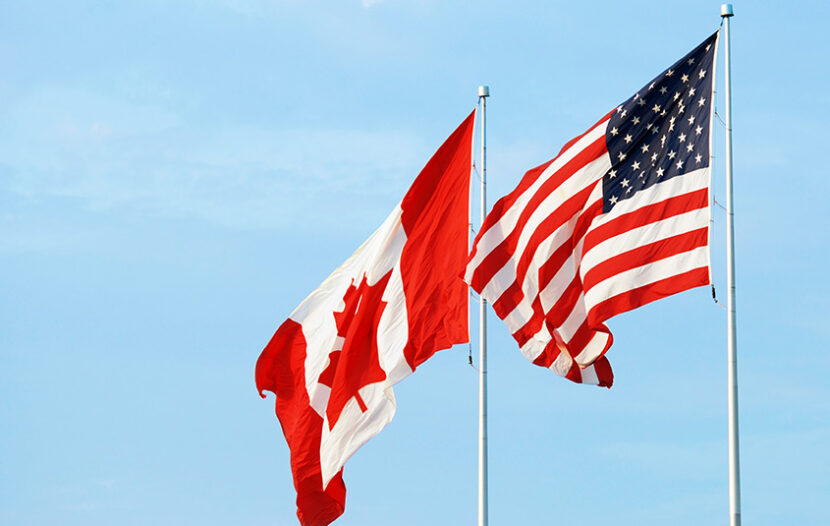OTTAWA — The closure of the Canada-U.S. border has been extended, yet again, by another 30 days, to June 21, 2021.
Minister of Public Safety and Emergency Preparedness, Bill Blair, confirmed the news on Twitter this morning.
“To help reduce the spread of #COVID-19, the current restrictions for all non-essential travel between Canada and the U.S. remain in effect until June 21,” said Blair.
Earlier this week, when pressed for more information about Canada’s plan to reopen its side of the border, Prime Minister Trudeau suggested that a 75% vaccination rate may be the starting point for discussions, but provided no further details.
Recent reports suggest that talks are underway about the reopening of the Canada-U.S. border – but whether those talks could lead to the border reopening this summer, or are the same routine check-ins that Canada and U.S. officials have maintained throughout the 14-month COVID-19 border closure – is anyone’s guess.
Earlier this month U.S. Senator Chuck Schumer sent a letter to the Biden administration stressing the need for a reopening plan for the Canada-U.S. border.
And New York Rep. Brian Higgins has written a letter to the White House as well, urging Biden to “directly engage” with Prime Minister Justin Trudeau in order to widen the definition of essential travellers by the end of May, with an eye toward fully reopening the border by early July.
Frustration in the travel industry with lack of transparency from the federal government about any plans to reopen Canada’s borders is high after more than 14 months of an almost complete shutdown of the travel industry.
“NOT PERMISSIBLE”
Meanwhile the U.S. border agency said on Wednesday that Canadians attempting to drive across the American border solely for a COVID-19 vaccination, even with a doctor’s referral, would be denied entry.
Unlike the Canadian government, Customs and Border Protection said it does not consider a vaccine essential for entry purposes.
“Travel for the sole purpose of obtaining a vaccination is not permissible under current travel restrictions,” an agency spokesman said. “If a person is entering the U.S. for legitimate travel reasons, as allowed under current restriction guidelines, and receives a vaccine incidental to their trip, it is not part of the overall admissibility determination.”
The Canada-U. S. border has been closed in light of the pandemic to all non-essential travel.
Earlier this week, the Public Health Agency of Canada said it considered driving to the States in a private vehicle for a COVID-19 vaccination on referral from a licensed health-care provider to be an essential medical service.
As a result, the agency said such travellers would fall under a quarantine exemption on return if they could show proof of having had the shot and the trip was solely for that purpose.
Health Canada did say the decision on whether entry into the U.S. is allowed would fall to American border authorities.
Shaun Horton said he tried to travel to New York on Wednesday from Niagara Falls, Ont., for a vaccination appointment just inside the U.S. but was turned back. He said the border agent did not want to see his doctor’s letter confirming that the vaccine was medically necessary.
Horton, an airline pilot in Canada, said he wanted the vaccination because he’s not allowed to wear a mask while the aircraft is in operation. He said he and his co-workers are tested prior to work.
“The officer advised that entry solely for the COVID-19 is not an acceptable purpose as Canada has access to a vaccine, regardless of the supply issues,” Horton told The Canadian Press.
However, David Musyj, head of Windsor Regional Hospital in Windsor, Ont., said there have been many examples of crossings for a vaccine allowed to happen.
“That is why this is so political and needs some clarity and leadership,” Musyj said. “We will keep trying to get vaccines into Canada.”
Musyj has been pressing Health Canada to clarify whether it considered COVID-19 vaccinations essential, saying it would be easy for people near the border to drive across for a shot, but that having to isolate for 14 days on return would be a major obstacle.
On Tuesday, hundreds of Albertans lined up at the Carway crossing for a quick drive into the U.S. for a COVID shot at a clinic put on by the Blackfeet Tribe of Montana. Those going to the clinic were exempt from having to quarantine for 14 days on return.
“I was amazed and grateful because it’s too slow getting it any other way,” said Linda Neilson, of Cardston, Alta. “We’re just glad they were able to help us.”
Musyj also said he was still pushing for federal approval to allow an organized effort to retrieve surplus vaccines from Detroit and bring them back for use here. Ottawa has said millions of COVID-19 inoculation doses are arriving but supplies remain limited in many areas.
With file from The Canadian Press

